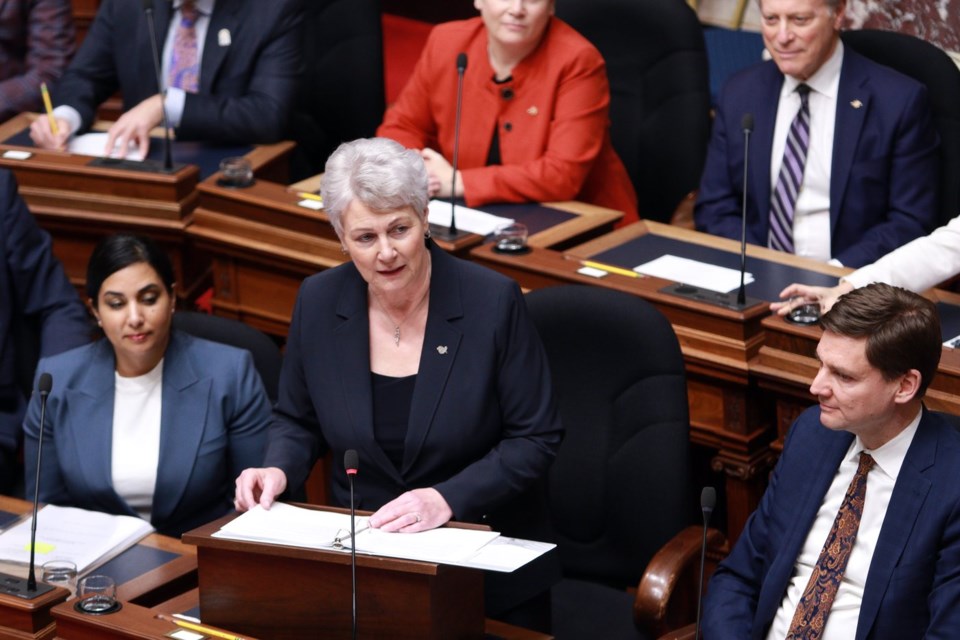VICTORIA — British Columbia's finance minister says now is not the time to balance the province's budget.
Katrine Conroy says the New Democratic government does plan for a balanced budget "in the future" but it will be the responsibility of a later finance minister.
"Right now is not the right time. We have to make sure that we're providing services to people, that we're not making cuts," she said while presenting the province's public accounts for the 2023-24 fiscal year on Thursday.
"There's still affordability issues in the province, and so we want to make sure we can support people."
Conroy released the audited financial statements for the fiscal year ending March 31, 2024 which peg the province's deficit at $5.035 billion.
That's lower than the most recent $5.9 billion forecast last quarter, but higher than the $4.2 billion originally predicted when the 2023 budget was tabled last year.
Conroy said the budget forecast was impacted by a drop in natural gas prices and revenue as well as a record $1.1 billion spent on wildfire management.
B.C. spent $401 million more than was budgeted in emergency responses to flooding and other events.
The province says year-end revenues were nearly $2 billion higher than the budget due to increased revenue from sources including vehicle insurer ICBC.
It says these were offset by lower revenues from natural resources. At the same time, year-end expenses were nearly $3.5 billion higher than the budget figure.
Conroy said the government prioritized front-line services like health care, building affordable housing and helping people with everyday costs.
B.C. spent $8.8 billion on taxpayer-supported capital projects like schools, hospitals and housing.
The look at the books comes two months before British Columbians are set to go to the polls in the next provincial elections.
Conroy said the NDP is ready to put its financial record up against the other parties seeking government.
"Our budget is manageable, our deficit is manageable. We have one of the best GDP to debt ratios in the country," she said.
A statement from the province says provincial real GDP grew by 1.6 per cent in 2023, higher than national average and above the one per cent forecast in this year's budget.
The public accounts report, written by the office of the comptroller, said taxpayer supported infrastructure spending on hospitals, schools, post-secondary facilities transit and roads was $8.77 billion. That was about $3 billion more than the budget figure, mainly due to project scheduling changes, with the spending deferred to future years.
Total provincial debt increased last fiscal year by about $18 billion, lower than the budget figure of about $18.5 billion.
The deficit is forecast to increase to $7.9 billion in the current fiscal year, according to the 2024 budget.
— By Ashley Joannou in Vancouver
This report by The Canadian Press was first published Aug. 22, 2024.
The Canadian Press



